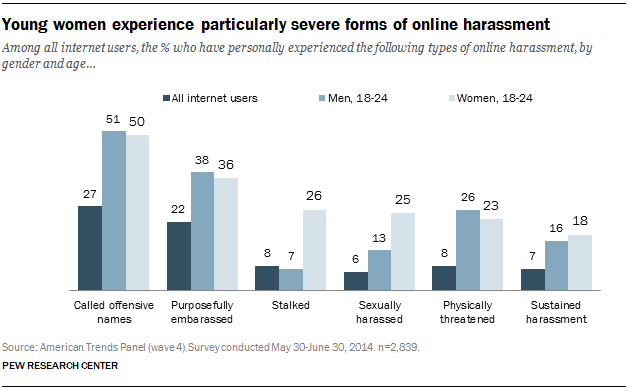Anita Sarkeesian Explains "GamerGate"on Colbert and Why You Should Care
By:
Feminist blogger and video game critic Anita Sarkeesian recently appeared on "The Colbert Report" to speak out about the attack on women within the video game industry and gamer community, dubbed "GamerGate."
Sarkeesian is no stranger to the dangers of speaking out against video games' misogynist undertones; recently, she was forced to cancel her speech at Utah State University after someone sent an email threatening "the deadliest school shooting in American history" if Sarkeesian was allowed to speak. Sarkeesian is a controversial figure in the gaming industry, with many accusing her of ties to particular game designers, feminists and journalists. However, as Sarkeesian succinctly explains to Stephen Colbert, "I think that is a sort of compelling way to reframe the fact that this is actually attacks on women. Ethics in journalism is not what's happening in any way. It's actually men going after women in really hostile, aggressive ways. That's what GamerGate is about."
Sarkeesian points out the essential flaw in the collusion theories - that they are used as an explanation or excuse for threatening women. Whether Sarkeesian is colluding with other feminists or journalists is not the point. Whether you agree with Sarkeesian's viewpoints on gaming is not the point. Whether you like or dislike Sarkeesian as a person is not the point. The point is that any woman should be able to express her opinions - online, in a public arena, anywhere - without fear of threats of rape or even on her life.
Now many use the reasoning "well, men are threatened online too. it's just the way the Internet is." And while, yes, men do receive threats on social media too, the nature of those threats in general differs from those aimed at women. A Pew survey showed that while men are slightly more likely to report being harassed online with name-calling and embarrassment, women are much more likely to report more serious online harassment, such as stalking or sexual harassment.

It, sadly, makes sense why Sarkeesian and other women in the gaming world are harassed and threatened repeatedly online: they are waging war on misogyny in one of the most male-dominant arenas out there: the gaming community. In GamerGate specifically, Colbert notes that it is "almost entirely women who are being threatened in GamerGate. Chris Cloe has talked about this - he hasn't been threatened, other men haven't been threatened." However, the amount of serious threats and sexually-explicit harassment online seems only to confirm Sarkeesian's point that the video game industry "reinforces this cultural myth that women are sexual objects and sexual playthings for male amusement."
GamerGate seems to be two problems coming to a head: first, there's the objectification of women in general that is so pervasive in our culture, and specifically, video games, which makes males believe it's okay to threaten to rape women online. The second issue is the matter of online threats as a whole: no one should be threatened or run out of their own homes out of fear just for expressing their opinions.
Sadly, laws and regulations have been slow to keep up with technological advances, and there are few safeguards in place to help victims of online harassment. The "report" buttons do not stop one from fearing the individual or group who delivered the threats in the first place and often police do not know how, or are unwilling, to handle online harassment cases. Just look at Sarkeesian's case - after the school shooting threat, the university refused to administer pat-downs or install metal detectors for the event. So what did the person who sent that email learn? That threats work. The lack of cooperation on the part of the local authorities in Utah to ensure Sarkeesian's safety is shocking and just goes to show that something must change in the way we view and handle online harassment.
Cyberbullying and cyberstalking are harmful and dangerous and should not be trivialized. The general logic today is that harassment is so pervasive on the Internet that it shouldn't be taken seriously. But this makes zero sense - the fact that it is so common is the exact reason that it should be taken seriously.
The longer we allow this to continue, the more aggressors will feel justified in their actions. It's clearly time to shift the culture, as well as our harassment policies, so that people view the power of their keyboard as consequentially as they view their spoken words.
